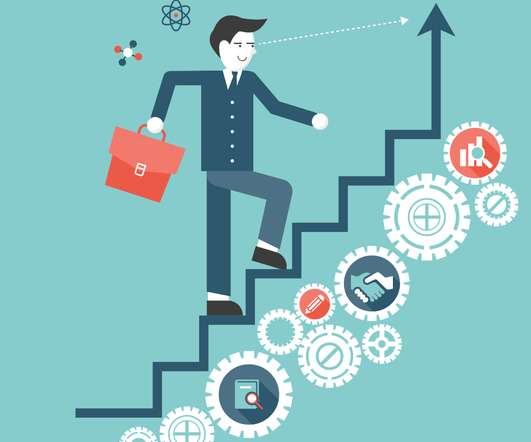What is Career Development?

posted:4 years agobyEman Zahrain Career Development
Career development is the basis for maintaining a high degree of self-demand and job improvement. When you feel that you have acquired maturity, solidity, and experience in different facets throughout your lives.
You realize that the attitude you have towards professional performance is very important, and it makes the difference between a single employee and any other.
Career development makes you better people and workers, and this is reflected in your Curriculum Vitae.
Types of Career Development
1-Traditional career
The traditional career is characterized by being predictable and linear, with values and rules managed by the organization. In this model, success is based on the hierarchical promotion. This is the case of people who develop their entire careers in the same company.
Who adapts this behavior are those who appreciate stability and security and the establishment of a relationship of trust and fidelity with the company. Often these people leave their personal fulfillment at the bottom, for the sake of career growth.
2-Protein career
The protein career, suggests that the person himself is to manage his professional journey, taking upon himself the responsibility that organizations once were.
They are those who seek personal fulfillment, based on their own values and criteria. These professionals are true to themselves and willing to prioritize job satisfaction.
Read also how can a person get UN jobs in Pakistan in 2020?

Importance of Career development
It is easy to differentiate between two recipients, as Career development got significant importance, both for employees and the companies they belong to.
For employees:
If you want to grow professionally, it is vital that you take care of your Career development, because doing so will bring you advantages such as:
- Increase your satisfaction.
- Incentive your career progression.
- Improve your salary.
For the companies:
- Increase productivity and profitability.
- Improve team motivation.
- The loyalty of the organization.
- Availability of professionals
This helps companies to have a wider range of professionals, motivated to work for them.
Career Development Examples
There are some of the most important examples of Career development.
1-Task Performance Assessment Matrix
This system allows you to establish which type of worker is best suited to perform a job within the team, based on their professional characteristics and the hierarchy of the company.
2-The in-company training and group coaching
These are two techniques widely used by companies to encourage Career development among its employees. They allow updating the equipment with the latest trends in the sector, improving the qualification of the employee at the work level.
3-Job rotation
It allows a high degree of job satisfaction to be maintained, by allowing each worker access to a different type of task, avoiding continued boredom. In this way, a positive attitude is promoted by the employees, minimizing discrimination at the task level.
The management development goals: It involves a focus on measuring productivity rates of workers to better derive actions based on the profitability of their work.
Career development Stages
1st. Stage: You work for someone
This phase of Career development is the one that almost everyone has to live through. At the beginning of your career, you look for a job in a company, and you seek to learn from someone, generally from your boss.
It is a vital learning period for your progress, and it is currently very dynamic in the millennial generation, due to the justified need to try to advance on high-speed tracks, where competitiveness is intense, diverse and multi-generational.
Check out what jobs do I have after doing graduation
2nd. Stage: Someone works for you
It is related to leadership, it is the period where you have managed to differentiate yourselves professionally and show the contribution of personal value to the business, to the point where companies ask you to represent them at certain levels, processes and functional areas.
This phase is less intense in learning and more fruitful in the execution and achievement of results. A basic characteristic that distinguishes it is that it normally allows you to generate savings and access a higher socioeconomic level.
3rd. Stage: You work for your personal entrepreneurship
Getting here is not easy, especially if you live in the US. It seems that everything is designed to make you give up on pursuing your dreams, where for various reasons the probability of success is very low.
In this phase it is required to “take the step without return”, overcoming your fears, developing skills that you never put to the test, assuming the risk of losing time and money, two very important resources at this stage of your life.
However, if you manage to maintain your resilience and put real passion into what you do, you will get ahead, you will consolidate over time and you will find the level of personal satisfaction that you never thought to achieve.
4th. Stage: Your entrepreneurship works for you
If reaching the previous phase was the most difficult part of your life then this is even more demanding. In this stage, you have to manage your capacity, your passion, the market and your knowledge, which surely generated satisfaction and profits.
Career Development Strategies
Strategy 1 - Personal Marketing
First of all, personal marketing is making your ideas, skills, abilities, strengths known. In essence, yourself and your business. Many entrepreneurs are afraid to talk about their entrepreneurship.
They are embarrassed or inhibited from mentioning it to others for fear of criticism then you have to think that not everyone is going to be interested in your business.
And even when they are potential clients and you feel that they do not show interest, you can find an excellent opportunity to discover what you could modify of your proposal to make it more satisfactory.
Learn about 9 cool tips that let you handle job offer negotiation like a pro
